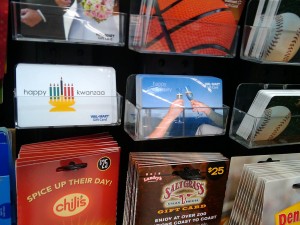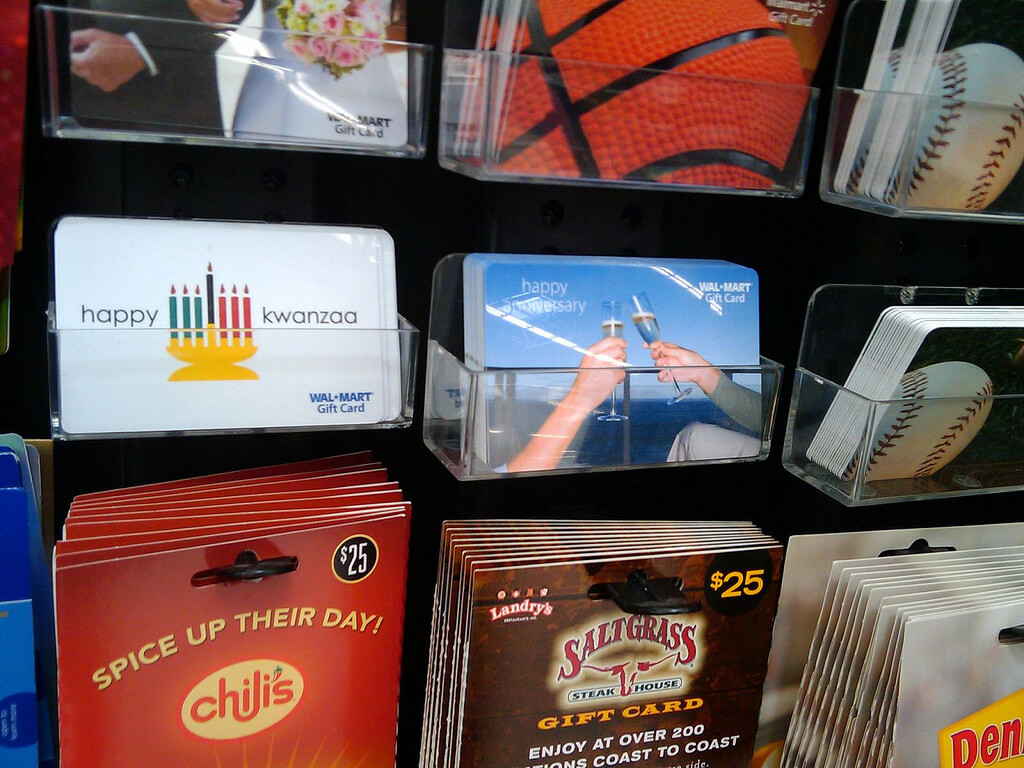 If you’re like me, you ended the holidays with a new stack of gift cards taking up valuable real estate in your wallet. I also gave a dozen or more myself for the same reason that most are given: they’re fast, generic, and take very little thought. It’s a quick way to check “buy a gift for Billy’s teacher” off of the to-do list.
If you’re like me, you ended the holidays with a new stack of gift cards taking up valuable real estate in your wallet. I also gave a dozen or more myself for the same reason that most are given: they’re fast, generic, and take very little thought. It’s a quick way to check “buy a gift for Billy’s teacher” off of the to-do list.
The art of gifting is no longer specialized. With consistent year-over-year gift card sales growth and virtual gift cards expecting to increase 500% by 2015, the premeditation of gift giving is a waning practice. However, what’s most startling is that an estimated $2 billion in gift card purchases made in 2012 are projected to go unredeemed — this lack of redemption can also be linked to a feedback gift card syndrome.
Here’s the parallel – broad, “do with it what you will” feedback may be a much easier, more convenient gift to give, but like its monetary kin, can be easily filed away, used differently from its intent, or even worse, forgotten about by the receiver all together.
In order for feedback to be a gift, it should be truly “gift-worthy.” Special care must be given to assess the recipient’s needs beyond traditional size or color preferences. But how does one avoid just opting for the feedback gift card? In Sloan Weitzel’s book, Feedback That Works: How to Build and Deliver Your Message, three easy steps on how to deliver the “gift of feedback” are outlined:
- First, capture the situation – be specific, within context, and non-judgmental
- Second, describe behavior – what needs to stop or continue to improve performance; facts and not interpretations
- Third, deliver impact – impact of the behavior on you and not the organization or on other people, thus building trust through personal experience
It’s too easy to employ a flat, broad sweeping approach to feedback, much like giving it on a gift card. So, instead of stating that your colleague is a ‘great thought partner, has a can-do attitude, but needs to work on his or her communication skills,’ reflect first, then provide insightful and very specific examples to support your personal experiences. And if you must use buzzwords, define in detail, the attributes of your ‘thought-partner’ or examples that exemplify their ‘can-do’ spirit. More importantly, when areas of opportunity exist, tailor feedback with customized accuracy, clearly articulate your comments and eliminate all ambiguity.
Just think back to a time when you received a “gift of feedback” only to find yourself in an immediate search for the receipt. Although a feedback gift card may be easier to give, it’s just as likely to never be fully redeemed by the recipient.
____

Kasey Short is a director of menu innovation with McDonald’s USA, and a doctoral student with the Center for Values-Driven Leadership.
For more on giving feedback, click here.
Gift card photo credit: kalebdf via Compfight cc

